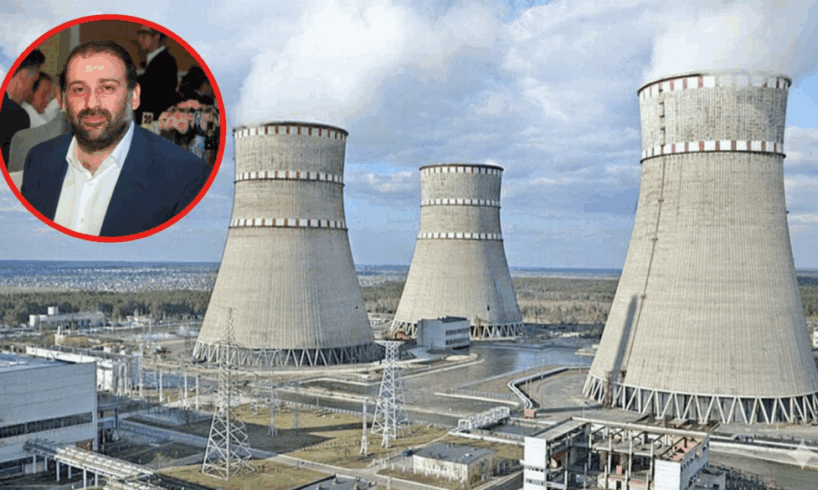
(function(w,q){w[q]=w[q]||[];w[q].push([“_mgc.load”])})(window,”_mgq”);
Ukraine’s National Anti-Corruption Bureau (NABU) revealed on 10 November 2025 an intricate corruption scheme at Energoatom: unvetted operatives wielding control over the country’s state nuclear company through systematic bribery. Over 1,000 hours of surveillance recordings and 70 nationwide raids documented how these external actors—without formal positions—made critical decisions affecting the strategic enterprise.
The investigation, dubbed Operation Midas, targeted businessman Timur Mindich—co-owner of President Volodymyr Zelenskyy’s former comedy studio Kvartal 95—along with Justice Minister Herman Galushchenko, who previously served as energy minister, and several Energoatom executives, according to Ukrainian outlet NV. MP Yaroslav Zheleznyak said Mindich left Ukraine hours before NABU officers arrived and “will be hiding in Israel and Austria,” Interfax Ukraine reported.
How the scheme operated: kickbacks and shadow control
The evidence is stark: video and audio recordings show Energoatom contractors openly discussing bribe percentages—10 to 15 percent of contract values, investigators found. They call it “Shlagbaum,” or boom barrier, slang for an obstacle designed to extract payments.
The scheme was ruthlessly systematic: prosecutors say bribes were demanded in exchange for avoiding blocked payments or loss of supplier status.”In fact, management of the strategic enterprise with annual revenue of over UAH 200 billion was carried out not by official employees, but by outsiders who had no formal authority, yet took on the role of ‘watchers,'” NABU specialists said.
The recordings capture conversations about halting critical infrastructure protection projects—not for engineering reasons, but over monetary disputes about kickback rates.
Who investigators targeted in nationwide raids
The operation zeroed in on a network of officials and businessmen, including:
Timur Mindich: Businessman and Kvartal 95 co-owner whose interests reportedly span defense (drone manufacturer Fire Point) and energy sectors. Media reports claim the FBI is investigating him for money laundering in cooperation with NABU.
Herman Galushchenko: Current Justice Minister who served as Energy Minister during the period under investigation. Zheleznyak submitted a formal request for his dismissal.
Ihor Myroniuk: Former advisor to Galushchenko whom sources describe as an “overseer” who met with contractors in back-office negotiations. NABU conducted searches at his residence.
Zukerman brothers (Mykhailo and Oleksandr): Financiers who allegedly handled Mindich’s business operations. Zheleznyak reported both fled Ukraine, though NABU officers intercepted one brother during a summer escape attempt.
Energy Minister Svitlana Hrynchuk also faces dismissal calls over alleged connections to the scheme.
Political fallout and parallel investigations
The scandal has triggered immediate fallout. Parliament member Zheleznyak branded it “systemic corruption” demanding action, and dismissal requests for Galushchenko and Hrynchuk face Parliamentary vote.
Ukraine’s Security Service (SBU) is separately investigating Mindich for “assistance to an aggressor state” based on allegations about diamond extraction and sales operations in Russia during the full-scale invasion, Interfax Ukraine reported. SBU’s Main Investigation Department confirmed on 6 November 2025 that it opened criminal proceedings under Article 111-2 of Ukraine’s Criminal Code.
Wartime vulnerability: what this means for Ukraine’s energy security
The alleged corruption occurred while Ukraine’s energy infrastructure faced systematic Russian missile and drone attacks. As a state enterprise managing nuclear power operations with annual revenues exceeding UAH 200 billion, Energoatom’s procurement and staffing processes offered lucrative opportunities for corrupt actors.
“Corruption in the energy sector, money laundering, illegal enrichment,” Oleksandr Abakumov, head of NABU’s detective unit, outlined as the main directions of the large-scale investigation, NV reported.
Diverting funds meant for nuclear safety and infrastructure projects creates vulnerabilities that could compromise defense readiness and undermine public trust in government accountability during wartime.
What happens next
NABU has not publicly identified all participants in the alleged criminal organization. Prosecutors say audio and video evidence will support further prosecutions as the investigation expands.
The case is seen as a critical test for Ukraine’s anti-corruption infrastructure. Western governments have previously defended NABU’s independence, viewing such enforcement as essential to Ukraine’s European integration path and its ability to maintain international support.
The investigation also raises serious governance questions for Energoatom. Before the full-scale invasion, the company generated approximately half of Ukraine’s electricity. With the six-reactor Zaporizhzhia Nuclear Power Plant under Russian occupation since March 2022, the integrity of the company’s remaining operations is paramount.
(function(w,q){w[q]=w[q]||[];w[q].push([“_mgc.load”])})(window,”_mgq”);





